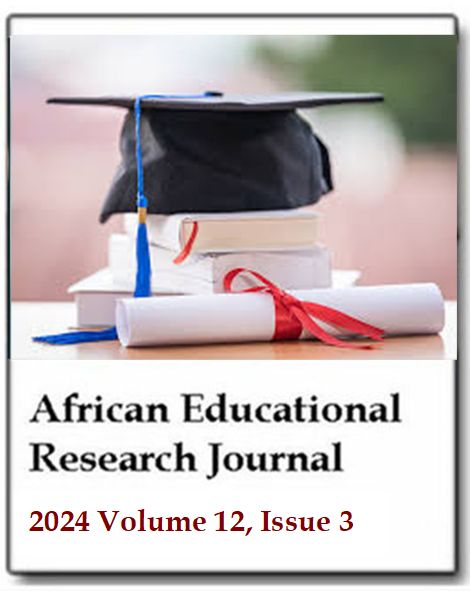Evaluation of the teaching profession on the basis of practitioners within the framework of modern education and training needs: Erzurum Province example
Mustafa Çağrı ENGİN, Ali Osman ENGİN, Başaran GENÇDOĞAN and Eda Alemdar ÇANKAYAAfrican Educational Research Journal
Published: July 9 2024
Volume 12, Issue 3
Pages 150-163
DOI: https://doi.org/10.30918/AERJ.123.24.017
Abstract
The teaching profession is a profession that must be practiced at a professional level as predicted by new education and training technologies and human psychology. It is necessary to look at the competency areas that make the teaching profession different from other professional fields. These competence areas are: 1- It must be top-level and updatable field information. As it is known, humanity has not yet reached the knowledge of the immutable absolute truth of yesterday, today and tomorrow in the name of positive sciences. Knowledge is relative and constantly changing. 2- Teaching profession knowledge: Pedagogical formation knowledge is meant here. 3- Knowledge of general and local culture: The teacher must be a communication expert at a professional level. For this purpose, healthy communication with the student is expected. The tool to be used here is knowledge of general and local culture. Guidance to students depends on this. 4- Teachers must devote themselves to their work and develop a sense of belonging, and they must enjoy and be satisfied with this professional process. Here is this dimension; It is essentially the spirit of amateurism, aspiring to burn in order to enlighten. In this study, teachers' opinions on the current situation regarding the teaching profession were evaluated within the framework of these competencies. For this purpose, this study was designed descriptively; the "Teacher Self-Evaluation Survey" was used as a data collection tool. This survey; ın the annex of the MEB Teacher Performance Evaluation and Candidate Teacher Work and Procedures Regulation (Draft) is a "Teacher Self-Evaluation Survey" and was used because it is available for public use. The survey consists of 50 items and options such as 1- Very little, 2- Little, 3- Medium, 4- Good and 5- Very good. The same survey was also used by teachers to evaluate teachers by adapting the expressions and comparisons were made. The data obtained through the survey was evaluated with arithmetic mean, standard deviation and “t” test for independent samples, and generalizations and appropriate comments were made.
Keywords: Teacher training, teaching profession, dedication to the profession, self-evaluation.
Full Text PDFThis article is published under the terms of the Creative Commons Attribution License 4.0

